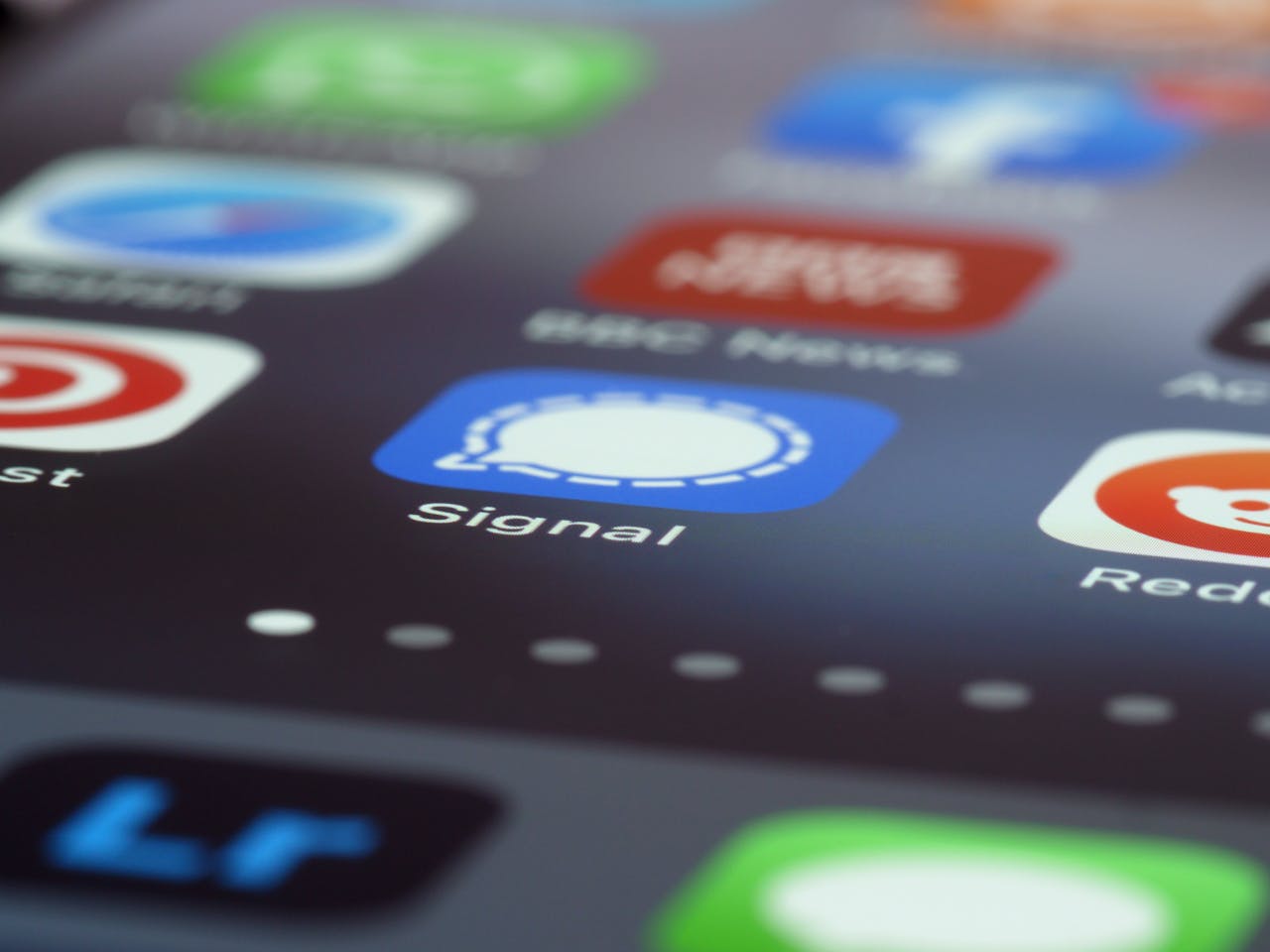Recent news has highlighted the use of the messaging application Signal by high-profile figures, including the Secretary of Defense. This has naturally led many to wonder: what exactly is Signal, and why has it become the preferred communication tool for individuals concerned about privacy and security? Let’s delve into the details of Signal and compare it with popular alternatives like WhatsApp and Telegram.
What is Signal?
Signal is a free and open-source messaging application available for smartphones (Android and iOS) and desktop computers (Windows, macOS, and Linux). Its core functionality revolves around secure, end-to-end encrypted communication. This means that messages, calls (both voice and video), and file transfers are scrambled in such a way that only the sender and the intended recipient(s) can decipher them. Even Signal itself cannot access the content of these communications.
Why Use Signal?
Signal stands out due to its strong commitment to security and privacy. Key advantages include:
- Default End-to-End Encryption: Signal encrypts all communications by default using the robust and widely respected Signal Protocol. This means your conversations are private from the moment they are sent.
- Open Source Transparency: The open-source nature of Signal allows security experts to scrutinize the code for vulnerabilities, increasing user confidence.
- Privacy-Focused Non-Profit: Being backed by a non-profit foundation ensures that user privacy remains the primary focus, free from the pressures of profit-driven motives.
- Minimal Data Footprint: Signal collects very limited user data, primarily your phone number for registration. Signal doesn’t store message content on its servers.
- Robust Security Features: Features like disappearing messages, screen security options, and registration lock provide users with greater control over their privacy and security.
- User-Friendly Interface: Despite its strong security, Signal offers an intuitive and easy-to-navigate interface, making secure communication accessible to all users.
Alternatives: WhatsApp and Telegram
While Signal has gained prominence for its security features, WhatsApp and Telegram are significantly more popular messaging apps with their own sets of pros and cons. Here’s a comparison:
WhatsApp, owned by Meta, is a dominant messaging app globally, offering end-to-end encryption by default for personal chats.
-
Pros:
- Massive User Base: WhatsApp’s vast popularity makes it likely that your contacts are already using it.
- Familiarity and Ease of Use: Its interface is widely recognized and user-friendly.
- Feature-Rich: Offers status updates, voice notes, video calls, and group chats.
- Multi-Platform Support: Available on various devices.
-
Cons:
- Privacy Concerns: The privacy implications of being owned by Meta, which has a history of data collection, are a consideration. WhatsApp collects more metadata than Signal.
- Metadata Retention: Even with end-to-end encryption, WhatsApp collects and retains metadata about user interactions.
Telegram
Telegram emphasizes speed and cloud-based accessibility. While it offers end-to-end encryption through its “Secret Chat” feature, it’s not the default for regular chats.
-
Pros:
- Cloud-Based Convenience: It offers the ability to sync across multiple devices seamlessly.
- Large Groups and Channels: Supports very large communities and broadcast channels.
- Feature-Rich: Includes bots, stickers, and customizable features.
-
Cons:
- Default Encryption Not End-to-End: Standard chats are not encrypted end-to-end, meaning Telegram technically has access to the content.
- Privacy Considerations: Concerns exist regarding Telegram’s proprietary encryption protocol and data handling compared to Signal’s open-source approach.
This table provides a side-by-side comparison of the key features of Signal, WhatsApp, and Telegram to help you understand their differences and make an informed decision based on your priorities.
| Feature | Signal | Telegram | |
| Primary Focus | Security and Privacy | Ease of Use and Wide Adoption | Speed, Cloud-Based Access, Large Groups |
| End-to-End Encryption | Default for all chats and calls (Highly Praised) | Default for one-on-one chats and calls | Optional “Secret Chats” (Standard chats are not) |
| Encryption Protocol | Signal Protocol (Open Source, Widely Respected) | Signal Protocol | Proprietary (MTProto, Subject to Scrutiny) |
| Open Source | Yes (Client and Server Code, Auditable) | No | Client-side is Open Source |
| Non-Profit | Yes (Signal Foundation, Privacy Focused) | No (Owned by Meta Platforms) | No (For-profit company) |
| Metadata Collection | Minimal (Phone number for registration) | Significant (Device ID, usage data, contacts, etc.) | Moderate (IP address, device info, user ID, contacts, etc.) |
| Server-Side Storage | No message content stored | Message content stored until delivered | Message content stored on their servers (except Secret Chats) |
| Disappearing Messages | Yes (Customizable timers) | Yes (24 hours, 7 days, 90 days) | Yes (Customizable timers in Secret Chats) |
| Screen Security | Yes (Option to block screenshots) | No | No (in regular chats) |
| Registration Lock | Yes (PIN to prevent unauthorized re-reg) | No | Yes (Two-Step Verification) |
| Group Chat Size Limit | Relatively smaller | Moderate | Very Large (up to 200,000 members) |
| Channels/Broadcasts | Group links for larger groups | Broadcast Lists (limited interaction) | Channels with unlimited subscribers |
| Voice and Video Calls | Yes (End-to-End Encrypted) | Yes (End-to-End Encrypted) | Yes (Not end-to-end encrypted by default) |
| Desktop App | Yes (Independent) | Yes (Web and Desktop – phone required initially) | Yes (Independent) |
| Web App | Yes (Independent) | Yes (Phone required) | Yes (Independent) |
| Bots | Limited | Business API available | Extensive bot platform |
| Stickers & Emojis | Standard set | Wide range, including animated | Extensive range, including animated and custom |
| File Sharing Limit | Relatively smaller | Moderate | Large (up to 2 GB per file) |
| Data Backup | Local backups (user controlled) | Cloud backups (Google Drive/iCloud) | Cloud-based syncing across devices |
| Privacy Reputation | Excellent (Strongest Emphasis on Privacy) | Mixed (Concerns due to Meta Ownership) | Moderate (Questions about Protocol and Data Handling) |
| Ease of Use | Very Good | Excellent | Good |
| User Base | Smaller, but growing | Very Large (Global Dominance) | Large |
Recommendation
Drawing from general understanding, the recommendation remains: for users who prioritize security and privacy above all else, Signal is the top choice. Its default end-to-end encryption, open-source transparency, and minimal data collection offer a level of security that WhatsApp and Telegram, in their default configurations, do not match.
While WhatsApp offers widespread connectivity and Telegram provides cloud convenience and large group features, these come with trade-offs in privacy. If your primary concern is ensuring your communications remain private and secure, Signal provides the most robust solution. The growing recognition of Signal by security-conscious individuals, as well as its adoption in contexts where security is paramount, underscores its strength in this area. Ultimately, the best app depends on your individual needs, but for uncompromised privacy and security, Signal leads the way.
Feeling lost in the digital world? Dr. Tom is here to help!
Join Dr. Tom every week in his award winning column, Dr. Tom’s Cyber Bits and Tips, for byte-sized advice on all things cyber and tech. Whether you’re concerned about online safety, curious about the latest cybercrime trends, or simply want to navigate the ever-evolving digital landscape, Dr. Tom has you covered.
From practical cybersecurity tips to insightful breakdowns of current threats, Dr. Tom’s column empowers you to stay informed and protect yourself online. So, dive in and get savvy with the web – with Dr. Tom as your guide!










